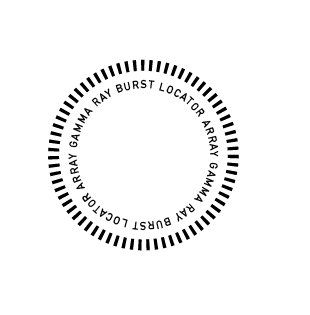Sensing Ecologies Audio excerpts
Sensing Ecologies
A Soundscape of geo-located interviews created for Bull Island exploring environmental sensors and bioindicators which are the plants and animals that act as natural sensors
Download the app from Apple or Google play stores
https://apps.apple.com/az/app/sensing-ecologies/id1499777761
https://play.google.com/store/apps/details?id=xyz.echoes.anurgentenquiry&hl=en_IE
Download the walk & press START. As you walk along the iconic wooden bridge to Bull Island and the pier and enter a yellow circular shape which appears on the app map you will trigger the audio content of that location.
The Sensing Ecologies app
allows you to enjoy the immersive experience of Audio A R (augmented reality). Audio AR is audio that layers and enriches the physical world around you.
When physically enter a yellow geo-location demarcated on the app map your presence will trigger the audio/interview for that location.
The interview will play once to the end while you remain in the circle. The geolocations are centred at benches and steps along the pier. Stay present and appreciate the richness of your surroundings, take in the 360° view of sea, land and sky while experiencing the additional layer of audio.
Explore how
researchers from various fields working on Bull Island and across the planet use environmental sensors, bioindicators, human senses and phenology (the study of plant and animal life cycles ) in understanding and mitigating the effects of climate change.
A series of interviews
explore environmental sensing referencing both man made sensors as well as bioindicators which are the plants and animals that act as natural sensors.
The geo-located recordings include voice-overs from the past (Darwin), interviews from the present and speculations on the future.
The interviews contemplate how this information might help us in understanding the effects of climate change.
Researchers from various fields of science and geography describe how islands act as natural laboratories. Bull Island with its many microhabitats is the envy of European researchers. Environmental sensors help in understanding the changing world around us and the data these sensors provide are not just an environmental archive but also a social archive. The ‘big data’ revolution provides evidence that climate change is breaking the earth’s beat; and how the original sensor in evolutionary biology and ecology, the human observer, still plays an essential role in validating this data.
There is irrefutable evidence that climate change is happening but how do researchers measure and predict this change? Sensing Ecologies invites you to explore some of the tools and methods researchers from various fields use to observe biodiversity and habitats and explore how human activity is intentionally and unintentionally transforming our planet.
Sensing Ecologies was created by artist Fiona Mc Donald as part of http://anurgentenquiry.ie/ residency commission for Bull Island 2019. An Urgent Enquiry is funded under the Arts Council’s Invitation to Collaboration Scheme, 2018 and 2019, Dublin City Council, Wexford County Council and Fingal County Council.
Thanks to National Parks & Wildlife Services (NPWS), Trinity College Dublin (TCD), The Irish Whale & Dolphin Group, CONNECT at TCD, The National Botanic Gardens of Ireland, The National Museum of Ireland, The Royal Irish Academy (RIA) and voice actor David Stone for their contributions.
Contributors
With special thanks to :
Patrick Bresnihan | Human Geographer
Fionn O’Marcaigh | Evolutionary Ecologist
Aoife Delaney | Coastal Ecologist
Brendan Sayers | Orchid Specialist
Sam Ross | Acoustic Ecologist
Aidan O Hanlon | Entomologist
Alison Donnelly | Phenologist
Charles Darwin | Voice actor David Stone
Clowie Russell | Marine Mammal Ecologist
Eco Hydrologist Shane Regan NPWS photo by Brian Crieghton
The Artist engaged with Aoife Delaney, Coastal Ecologist and Eco Hydrologist Shane Regan from National Parks and Wildlife Service on a number of site visits to the Island’s Alder Marsh. In September 2019, Fiona along with Shane Regan reinstated hydrology monitoring devices on Bull Island used to measure the water table. Data collected from the sensor is important for the conservation of these rare and important ecosystems.
"An understanding of the hydrological regime via monitoring is therefore key to us being able to suggest and implement measures to try to ensure conservation of these habitats and the communities of plants and animals they support. In addition to previous data the newly installed sensors will give us a long-term data set going back to the beginning of the century which will help detect changes in the dunes and relate them to environmental pressures.’’
Aoife Delaney
Fiona McDonald’s residency in Dublin City was research based, collaboratively developed and sensitively attuned to the surrounding ecologies of Bull Island. It was underpinned by an interdisciplinary practice which particularly focused on engagement with specialists from various fields, including botanists, zoologists, a hydrologist, an acoustic ecologist and a human geographer. The investigations and interviews conducted were informed by the deeper frameworks of ideology associated with conservation and preservation as well as industrial, human and ecosystem ecologies. The residency and public outcome addressed biodiversity issues associated with marine habitats, habitat loss and fragmentation, human behaviour, sustainability, range, evolution, mutation and niche, as well as notions of chaos, complexity, flux, technology and systems. The manifestation of this investigation and interaction was realised in the form of a mobile application titled Sensing Ecologies which is based along a geo-located walk along the wooden bridge and North Bull Wall, Dublin. Through a series of interviews and soundscapes, the artwork explores environmental sensors, bio-indicators (plants and animals which act as sensors) and how this information might help in understanding or mitigating the effects of climate change. It examines how our environment is converging with technology, and how human anthropogenic activity is intentionally and unintentionally transforming our planet. Through Sensing Ecologies she not only bridged the languages and methodologies of art and science but also opened up reflective, eco-perceptive spaces for the audience to peer into the past, glimpse the complexity of the present, and imagine a future through a multispecies perspective. Text by Dr Eileen Hutton















